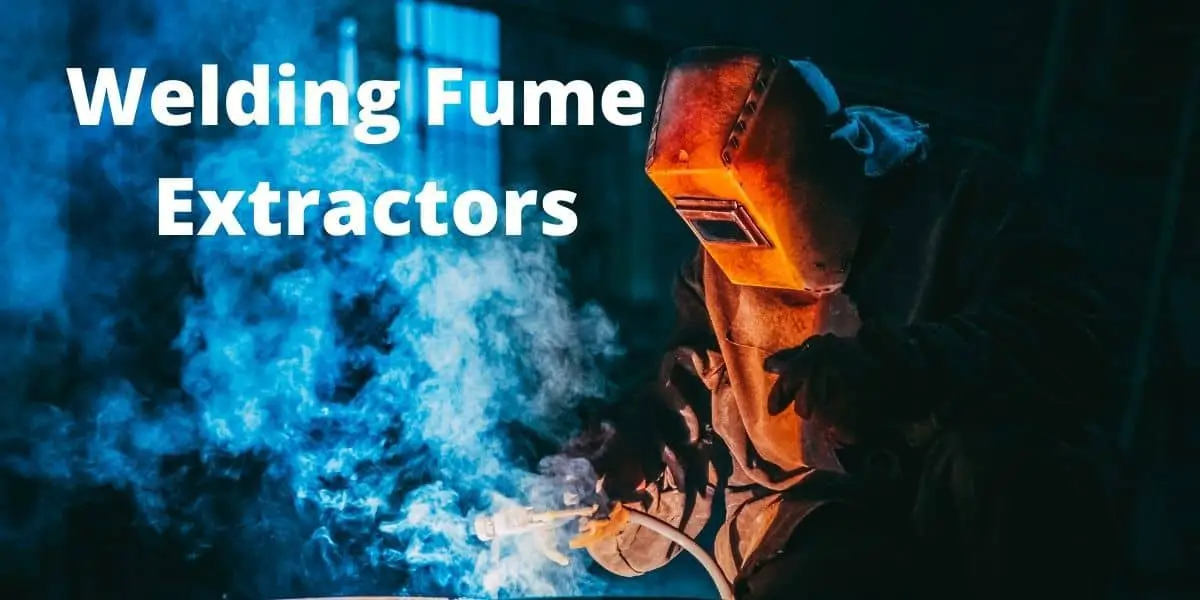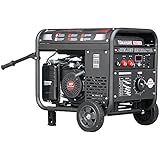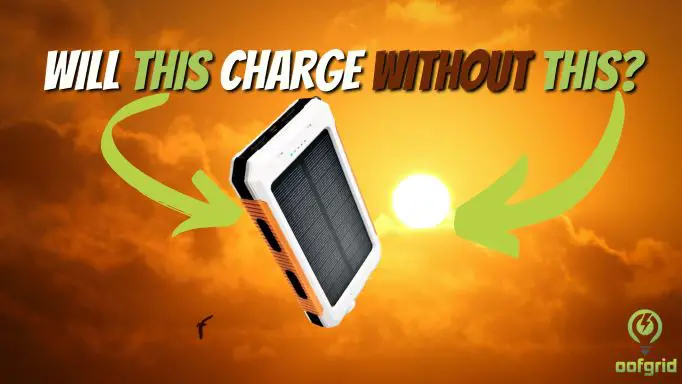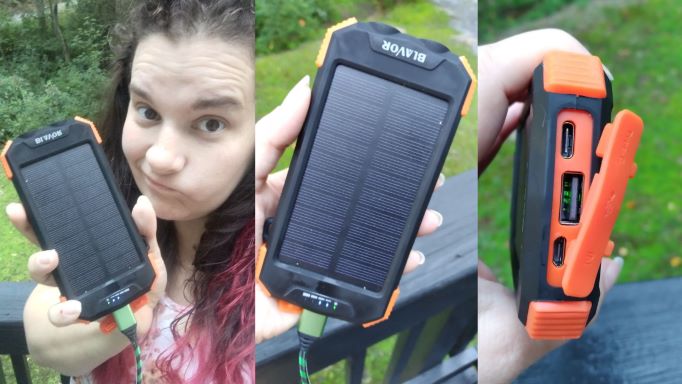Welding fume extractors were considered a luxury at some point. However, they’re now a ‘must’ to use, according to recent government regulations. Not to mention that the filtration will protect your lungs from the harmful inhalations.
That being said, fume extractors need a power source to run on. The first thing that’ll come to your mind is a portable generator. These units are affordable, compact, and easy to use.
But let’s ask the important question: will a portable generator run a welding fume extractor? That’s what we’re here to talk about.
Contents
What Is a Welding Fume Extractor?
Fume extractors are used during welding to remove smake and harmful particles. Their main component is a fan that sucks the fumes right into the filtration system. The number of filters goes according to the extractor of your choice; some extractors will include various filters.
These units work on separating the hazardous fumes from the air. The fan then releases the air back into the environment. Afterward, the dust and particles are collected in a tray that you should regularly empty.
Why You Need It
The thing with welding fumes is that they stay in the air for a while. Breathing in this air will then serve as a health risk. The particles will find their way into your lungs, and they might reach your bloodstream later on.
If you’re welding in stainless steel, the risk becomes even bigger because of the presence of hexavalent chromium. Not to mention that manganese, lead, and nickel also join in. A welding fume extractor will protect you from all these chemical elements. This reason should be enough for you to buy one.
Can You Run a Fume Extraction System on a Portable Generator?
The answer is yes, you can. But you can’t do it with any portable generator. These units vary in size, power, and capacity. If you want to run your fume extractor, you’ll have to buy a portable generator that fulfills its needs.
Fume extractors generally run on electric power of 115-220v. It varies according to the motor’s power, which you should choose according to the wire size, weld position, and amperage rating. These factors will affect the flow requirement and static pressure of the extractor.
Moreover, the power requirement of fume extraction systems depends partially on the vacuum. Low vacuum systems demand less power because they produce minimal flow. On the other hand, high vacuum systems will be packed with features, which in turn requires generous powering.
So, the powering depends on plenty of factors; that’s why you should be fully aware of your extractor before you decide to run it on a portable generator.

What Size Generator Do You Need for Fume Extraction Systems?
The power output of generators is usually measured in watts. If your portable generator is labeled with 4800W, this means that it has the ability to produce 40 A at 120v.
In some cases, though, it’ll produce 20 A at 240 V. This is something you should make sure to check before buying.
In order to run a welding fume extractor, you’ll need a minimum generator output of 5000W. It’ll vary according to your fume extractor and its demands. On top of that, if you intend to run a welder simultaneously with the extractor, the required output will take a leap to 7500W.
It depends mainly on the power output. If it’s 180-200A, an 8000-watt portable generator would be ideal. If it’s 250 A or higher, you’ll need a hefty output of 13000 W. And of course, running additional equipment will require you to increase the wattage accordingly.
All-in-all, you’ll need to match your generator’s maximum output with your extractor’s minimum requirements. If there’s a substantial gap in-between, it simply won’t work. It’s always better to go with the bigger option.
In addition to that, you may need a welding generator; these units are designed to run a constant load. Meanwhile, regular generators don’t provide the same steady flow.
- 210 Amps of output with a 60% duty cycle
- Inverter Generator with stable sine wave for the steadiest welding
- Weld and Run Electric Tools all at once
- Able to weld 1/3, 1/4, 3/8 inch
- Easily set amperage with Electronic Reader and Knob
Last update on 2025-05-23 / Affiliate links / Images from Amazon Product Advertising API
Why Using a Small Portable Generator Isn’t a Good Idea
Buyers on a tight budget will all look for the option that costs less, but it isn’t always a good idea. With generators, smaller ones will be fuel-efficient, as well as affordable.
So, you won’t only be saving money on buying, but you’ll also be reducing the usage cost in the long term. However, you won’t be able to run your welding fume extractor with the efficiency you expect.
For starters, if the generator is smaller than needed, it’ll need to work twice as hard. As a result, sudden pike spikes may occur, which will damage the extractor or cause it to shut down.
Additionally, the low wattage will reduce the extractor’s filtration efficiency. Therefore, the fumes will still sit in the air.
Lastly, you won’t be able to run any additional equipment with the extractor. So, while a large generator will cost a lot, it’ll save you a lot of hassle. And no one ever complained from high performance, anyway. Always get a power higher than what you need.
Why You May Need Voltage Protection
Standard portable generators tend to produce inconsistent power, which can affect your welding. Besides, it may have an impact on the fume extractor’s performance.
Not to mention that it can cause sudden voltage spikes in unfortunate situations.
The ultimate solution to this is getting a welder generator. However, if that’s not possible, you can always opt for equipment with voltage protection. Whether it’s the welder or the fume extractor, built-in voltage protection will lower the risk of damage and irregular power surges.
Closing Thoughts
Now that you’re aware of the health risks of welding without a fume extractor, we trust you’ll start looking for a suitable one to buy. The most essential thing to consider is the generator. Not all portable generators will be able to run extractors.
When searching through your options, opt for the bigger generator, even if it costs more. It’ll be more convenient in the long term.








